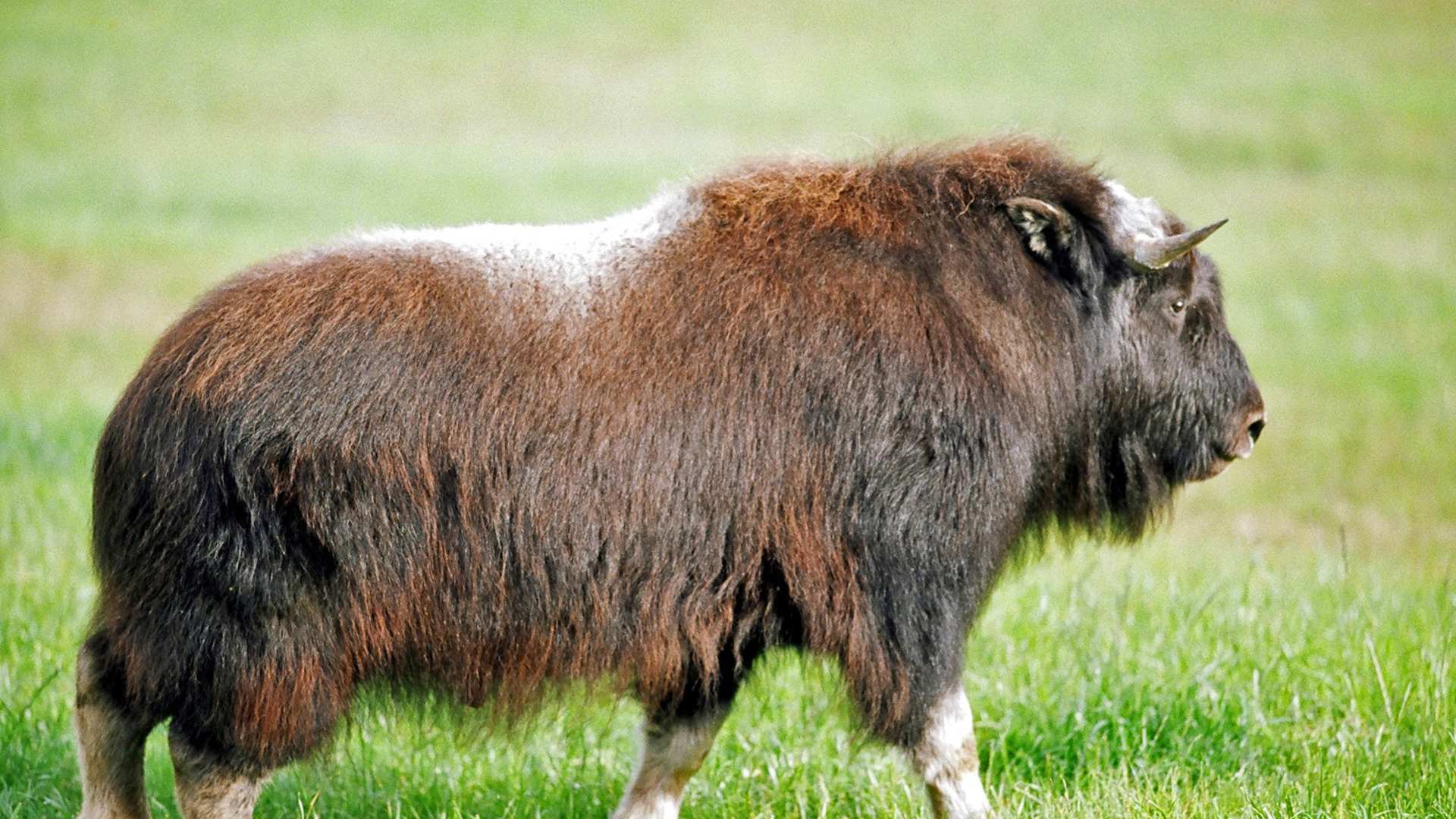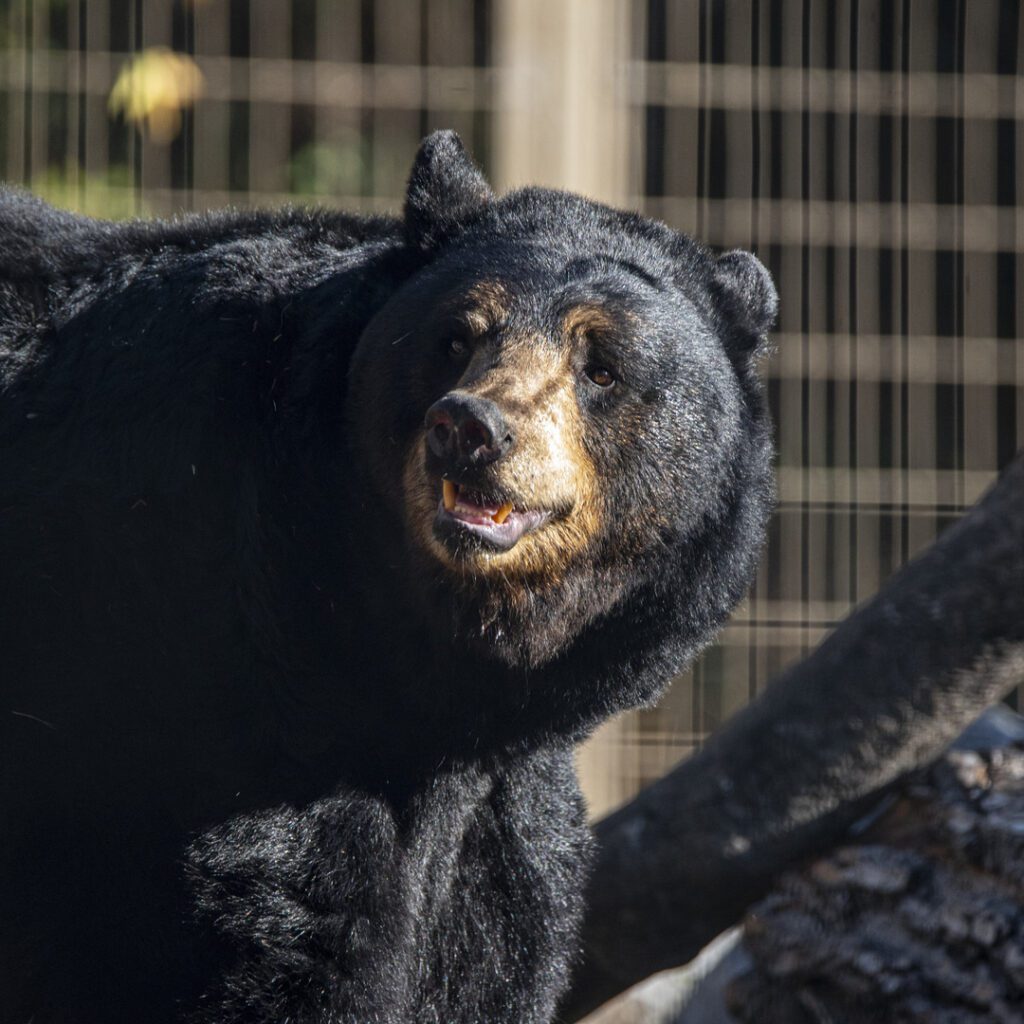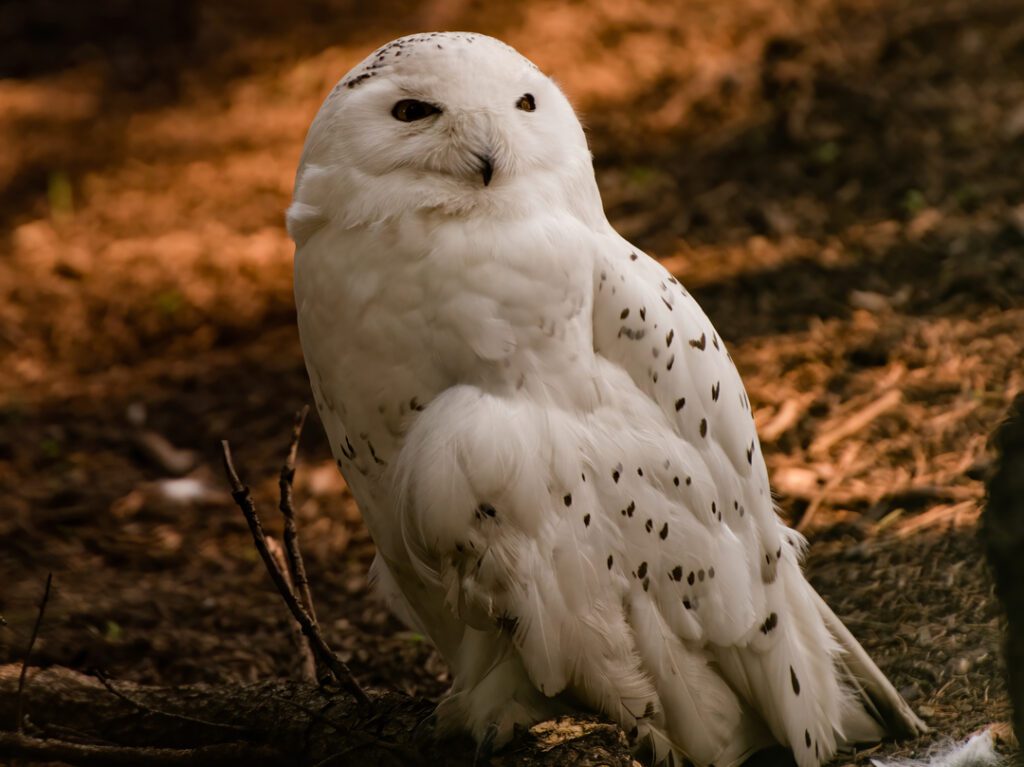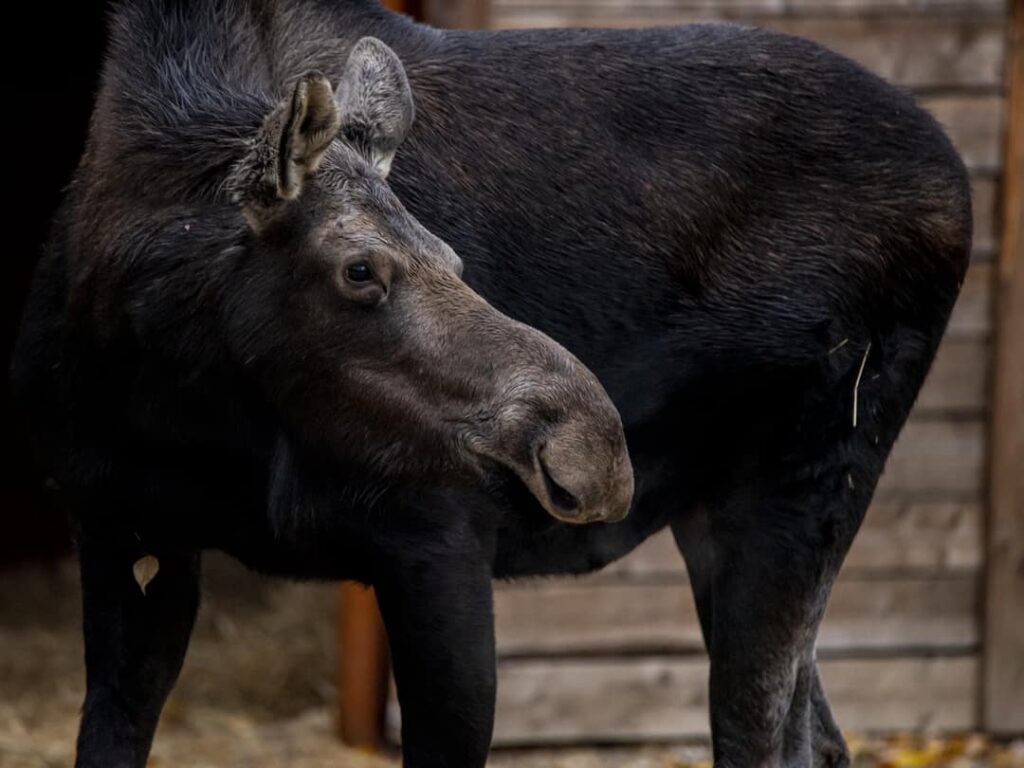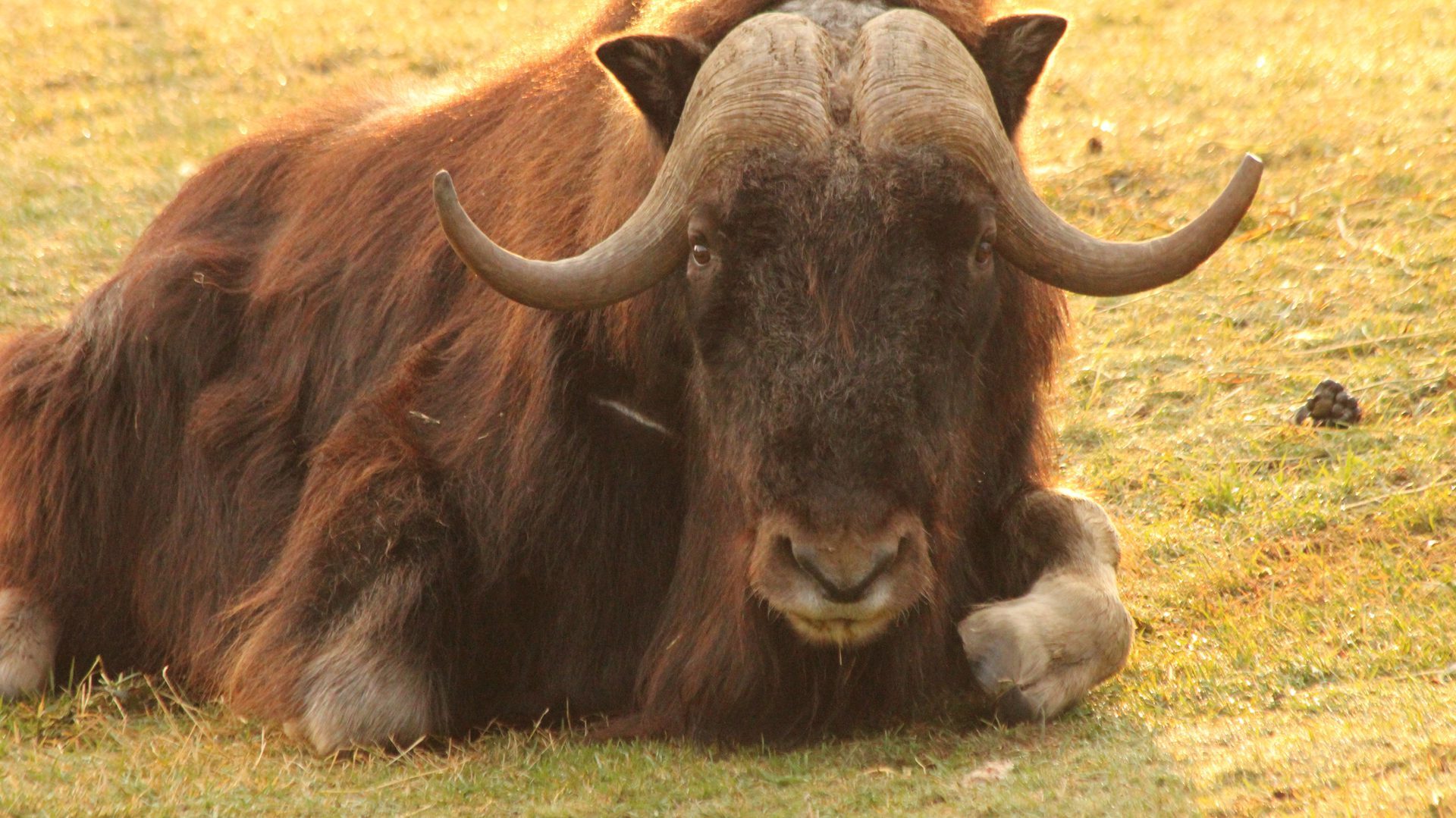
Muskoxen
Cold temperatures are no problem with hair like this
Big and bulky and with sharp horns, a muskox may look intimidating, but this herbivore’s toughness is saved for surviving the cold of its Arctic home. Muskoxen stay warm on the frozen tundra with two layers of hair that insulate them against frigid temperatures. Like its goat and sheep cousins, a muskox has horizontal pupils that help it to reduce the sun’s glare on snow and ice.
- IUCN Red List Status: Least Concern (at relatively low risk of extinction)
- Type: Mammal
- Habitat: Tundra of Canada, Alaska, and Greenland
- Diet: Herbivore – willows, sedges, and flowering plants
- Size: 4 to 5 feet at the shoulder
- Weight: 500 to 800 pounds
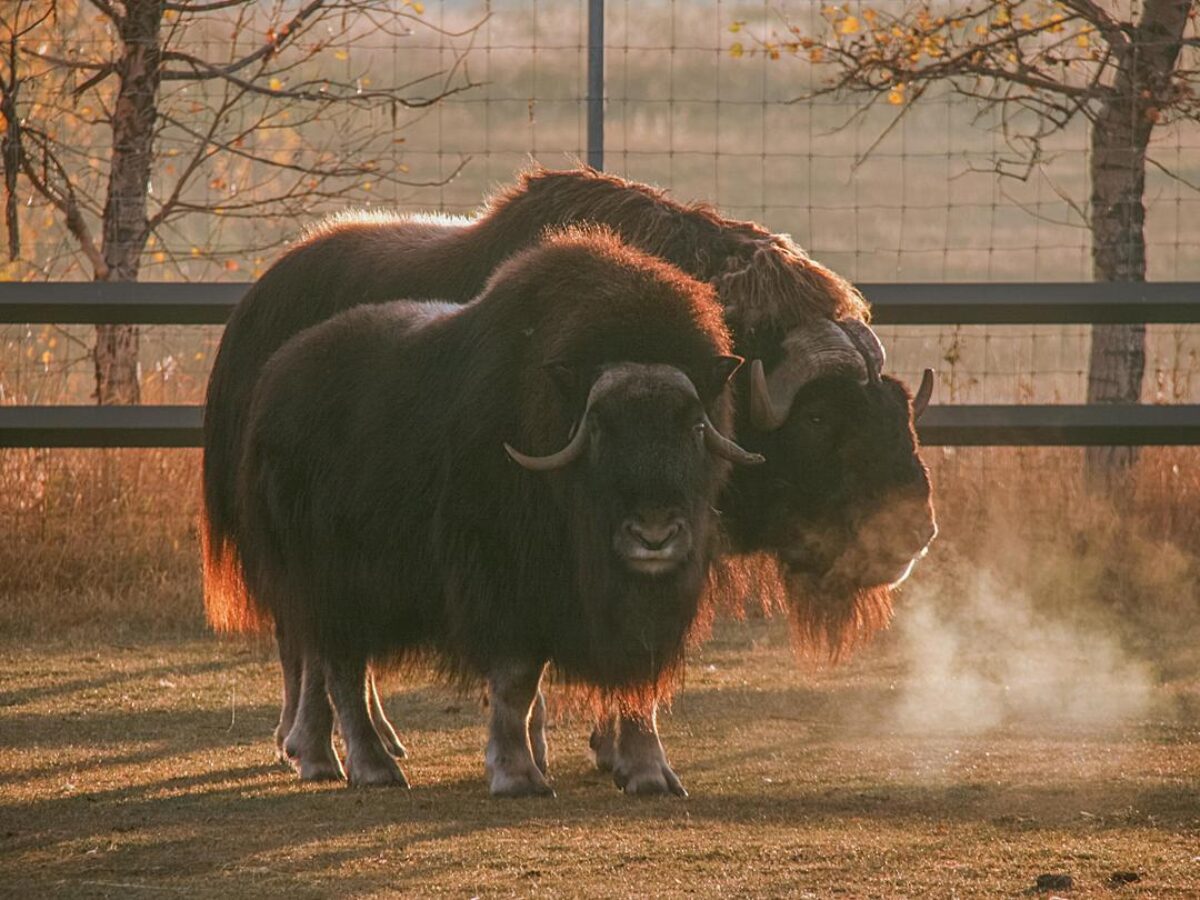
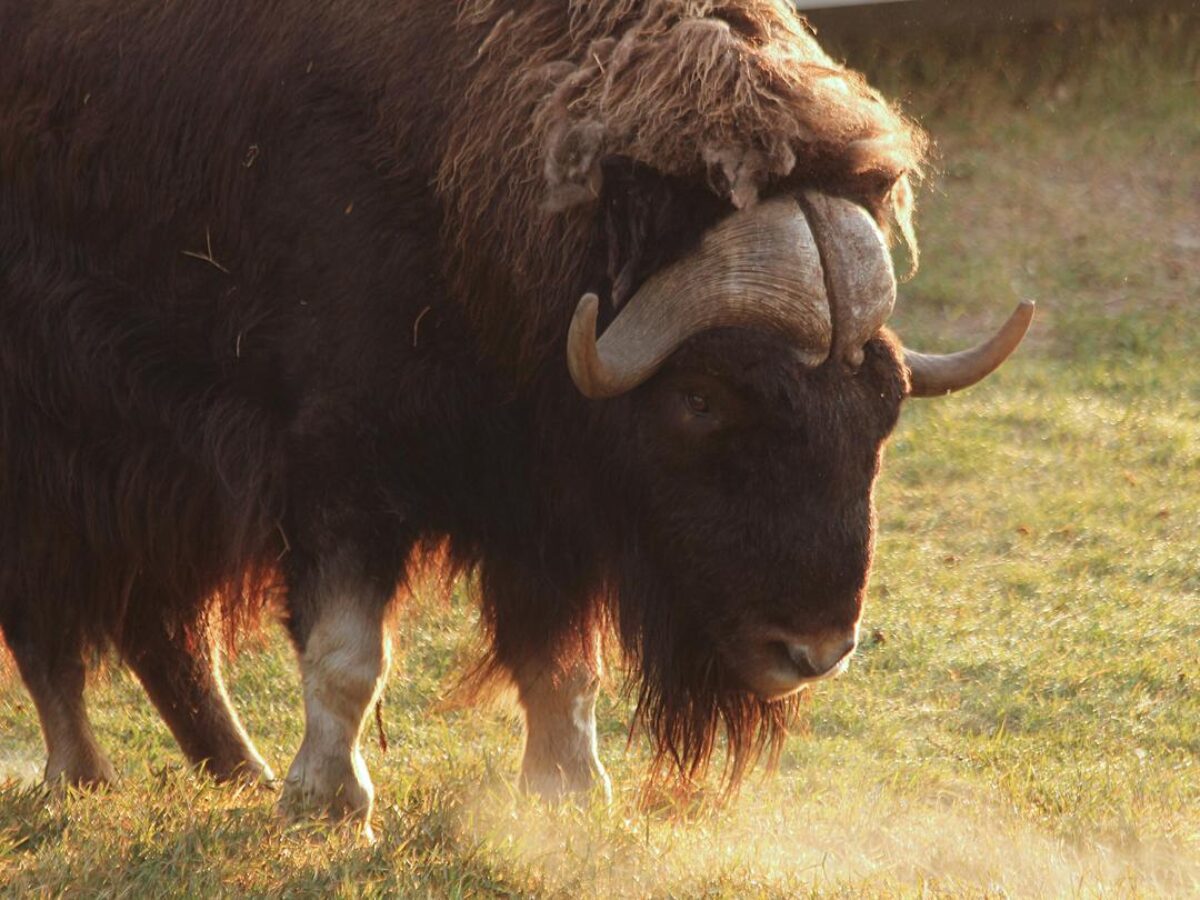
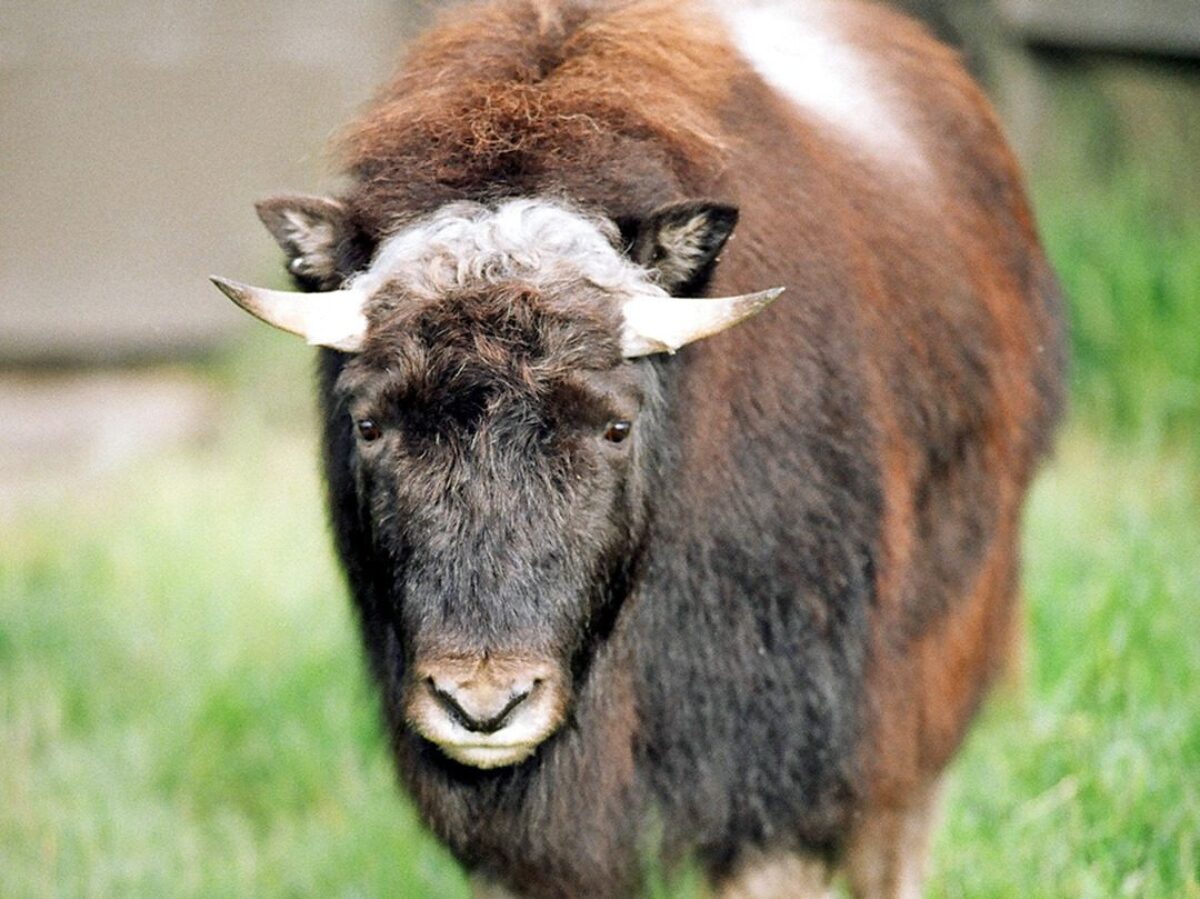
facts about our animals
Fun Facts about Muskoxen
Just hours after a muskox is born, it begins walking around with the rest of the herd.
Males will often lead the herd during the breeding season, while females lead at other parts of the year.
When a herd is threatened, members will stand in a defensive circle, keeping their young safe in the middle while adults point their horns at attackers.
Their brown under hair, qiviut, is incredibly soft and highly valued.
The skull of an adult male muskox is three inches thick.
Muskoxen get their name from the smell they release during mating season.
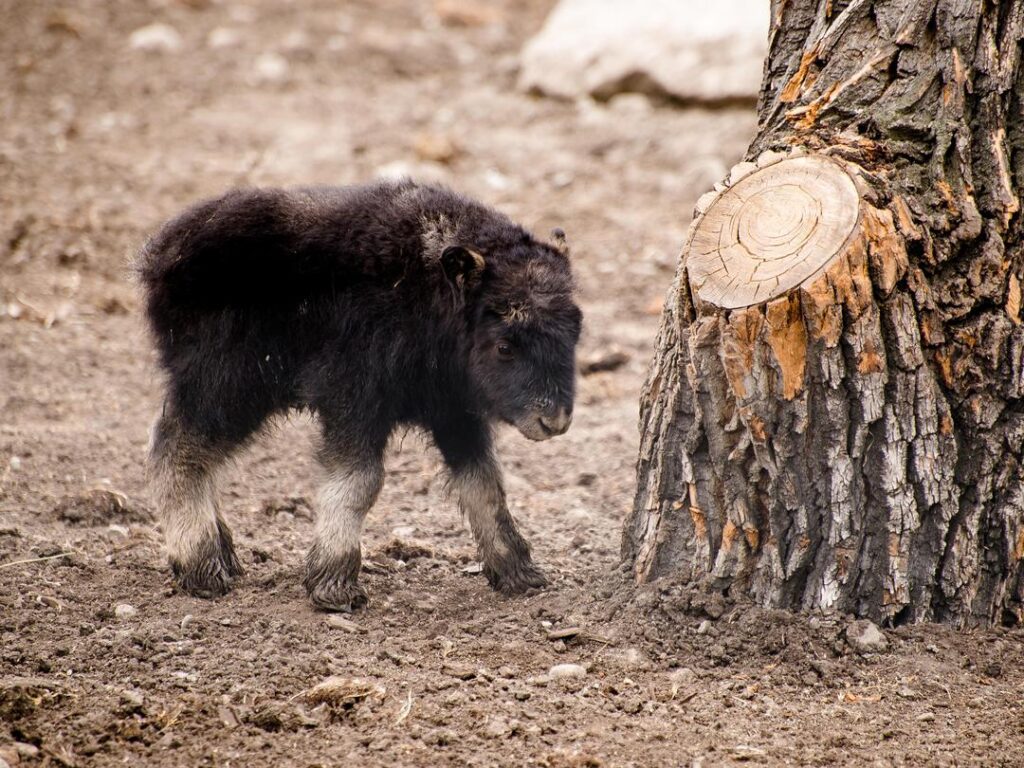
Donate
How you can help
Your donation makes a world of difference. With support for animal care, conservation programs, and education, you’re making the world wilder.
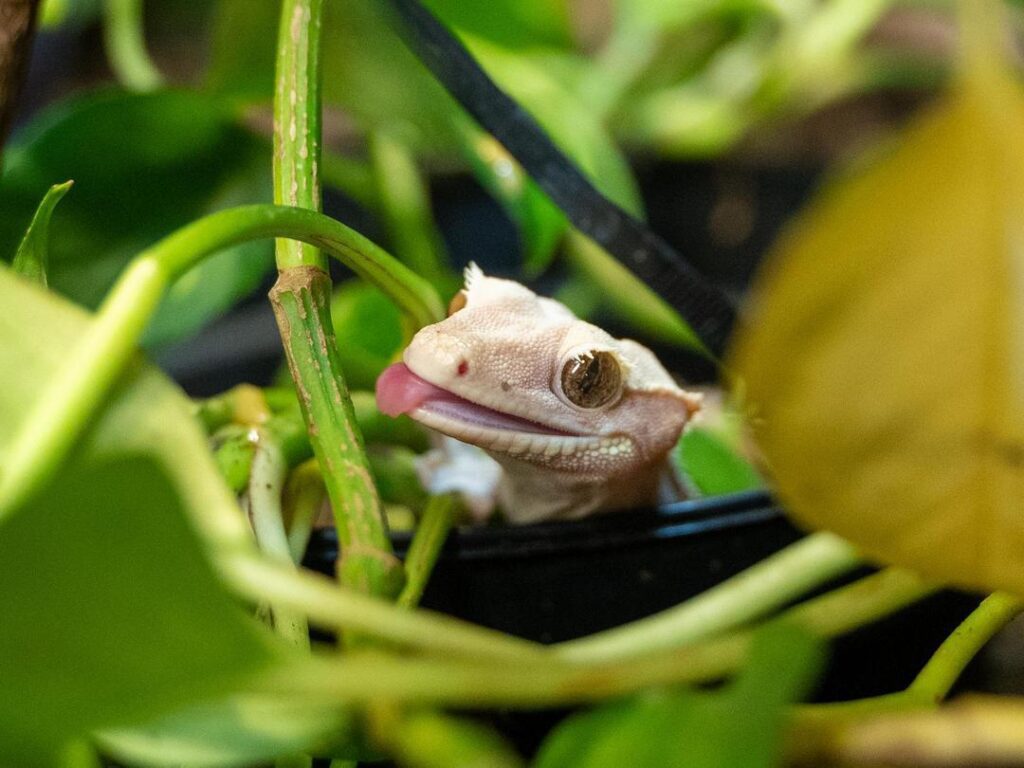
Plan Your Visit
Get close to wildlife
It’s time to make some memories. Here’s everything you need to know to plan an unforgettable day at the zoo.
